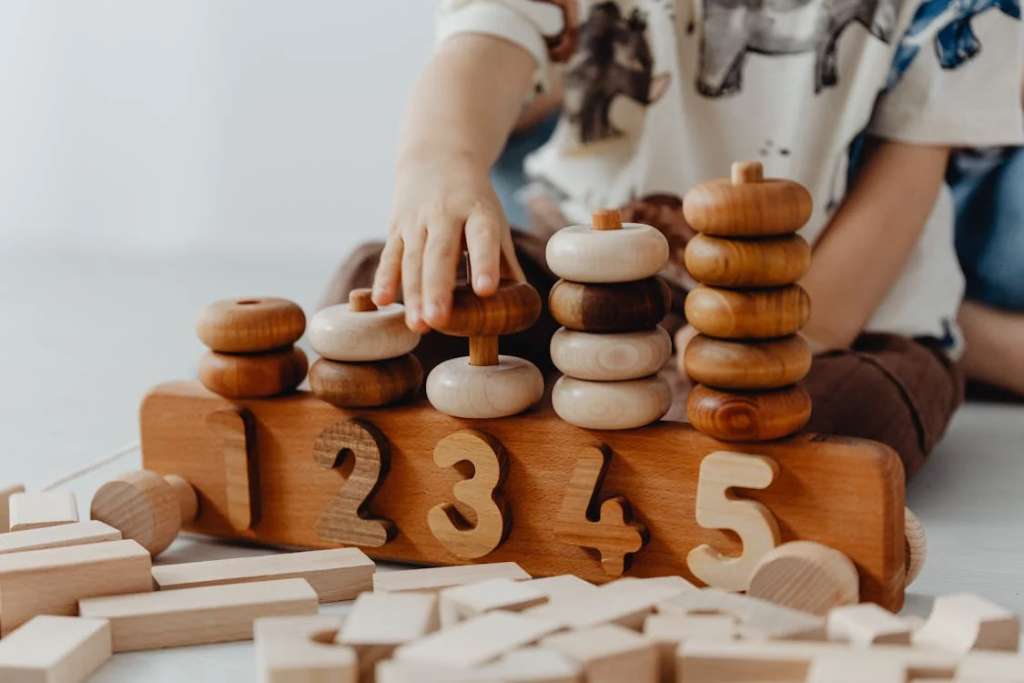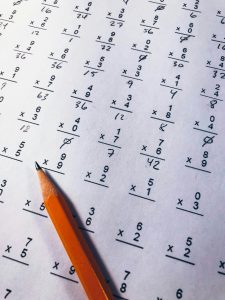How to Use Math Puzzles to Teach Multiplication Tables

Multiplication tables are a crucial foundation for a child’s mathematical development. However, teaching multiplication tables can be challenging for both parents and children. Rote memorization often leads to frustration and disengagement. But what if there was a way to make this learning process enjoyable and interactive? Enter math puzzles! In this article, we’ll explore the benefits of using math puzzles to teach multiplication tables and provide practical strategies for implementation. Let’s embark on an adventure that transforms learning into a fun-filled journey!
The Importance of Learning Multiplication Tables
To understand why multiplication tables are vital, we need to recognize their role as the building blocks of mathematical fluency. Mastery of multiplication enhances numerical fluency, allowing children to solve problems more efficiently. Research shows that students who possess a solid grasp of multiplication facts tend to perform better in math overall as it builds confidence and reduces anxiety when tackling complex tasks.
Types of Math Puzzles for Teaching Multiplication
Multiplication Crossword Puzzles
Multiplication crosswords challenge children to fill in a grid using multiplication facts based on given clues. These puzzles reinforce math vocabulary while encouraging active recall of multiplication facts.
Multiplication Bingo
In this game, children have bingo cards filled with products from multiplication problems. As the teacher or parent calls out multiplication questions, players cover the corresponding product on their cards. Bingo adds a fun competitive element to learning multiplication tables, promoting quick recall of facts.
Fill-in-the-Blank Multiplication Worksheets
Fill-in-the-blank worksheets present incomplete multiplication equations, encouraging children to fill in the missing factors or products. These exercises reinforce understanding of multiplication relationships and improve calculation skills.
Multiplication Word Problems
Word problems incorporating multiplication scenarios require children to read carefully and determine the appropriate multiplication operation to solve them. These problems enhance problem-solving skills and improve comprehension abilities.
Timed Multiplication Drills
Timed drills involve presenting a series of multiplication problems within a set time limit. These drills can help improve speed and accuracy in recalling multiplication facts.
Math Puzzles with Patterns
Puzzles involving identifying patterns in multiplication tables, such as even or odd products, engage children and help them understand the structure of multiplication tables.
Interactive Online Games
Many educational websites offer interactive games focused on multiplication skills. These games provide instant feedback and rewards for correct answers, making learning fun and engaging.
Benefits of Using Math Puzzles for Teaching Multiplication
Engagement
Math puzzles make learning active and enjoyable, capturing children’s interest more effectively than traditional methods. By incorporating puzzles into the learning process, children become active participants, enhancing their engagement and motivation.
Critical Thinking Development
Solving puzzles requires logical reasoning and problem-solving skills, which are essential for mathematical understanding. Math puzzles challenge children to think critically, analyze information, and make connections between different concepts.
Reinforcement of Concepts
Puzzles provide varied contexts for practising multiplication facts, helping solidify knowledge through repetition in different formats. By solving puzzles, children reinforce their understanding of multiplication relationships and improve their calculation skills.
Reduced Anxiety
By presenting math in a game-like format, puzzles can alleviate the stress often associated with learning new concepts. Children can approach multiplication tables with a sense of curiosity, exploration, and fun.
Collaboration Opportunities
Many puzzles can be solved collaboratively, promoting teamwork and communication among peers or family members. Collaborative problem-solving fosters a supportive learning environment and enhances motivation.
Types of Math Puzzles for Multiplication and Their Benefits
|
Puzzle Type |
Description |
Key Benefits |
|---|---|---|
|
Multiplication Crossword Puzzles |
Fill in grids using multiplication facts based on clues. |
Improves recall and math vocabulary. |
|
Multiplication Bingo |
Match products of multiplication to bingo cards. |
Promotes quick recall and adds fun. |
|
Fill-in-the-Blank Worksheets |
Solve incomplete multiplication equations. |
Strengthens understanding of math relationships. |
|
Multiplication Word Problems |
Solve real-world scenarios involving multiplication. |
Enhances problem-solving and comprehension. |
|
Timed Drills |
Solve problems quickly within a set time. |
Boosts speed and accuracy. |
|
Math Puzzles with Patterns |
Identify patterns like even or odd products in multiplication. |
Builds structural understanding of tables. |
|
Interactive Online Games |
Play digital puzzles with instant feedback and rewards. |
Makes learning engaging and dynamic. |
Strategies for Implementing Math Puzzles in Learning
Create a Puzzle Routine
Set aside specific times during the week dedicated to solving math puzzles focused on multiplication. Consistency helps establish a routine while providing regular practice opportunities.
Incorporate Technology
Utilize online resources or apps that offer interactive multiplication puzzles and games. Websites like Coolmath Games or ABCya provide engaging platforms for practising math skills.
Combine Different Puzzle Types
Mix various types of puzzles—crosswords, bingo, word problems—to keep the learning experience fresh and exciting. This variety helps maintain interest while reinforcing the same concepts.
Encourage Group Activities
Organize puzzle-solving sessions with friends or family members where children can work together on challenges. This collaborative approach fosters teamwork while enhancing motivation.
Celebrate Achievements
Acknowledge children’s progress when they successfully complete puzzles or master specific multiplication facts. Celebrating these milestones reinforces their efforts and encourages continued practice.
Use Real-Life Scenarios
Incorporate real-world examples into word problems or discussions about multiplication, such as calculating total costs while shopping. This contextualization helps children see the relevance of what they are learning.
Tailor Challenges to Skill Levels
Adjust the difficulty level of puzzles based on your child’s proficiency with multiplication tables. Start with simpler problems and gradually introduce more complex challenges as they gain confidence.
Conclusion
In conclusion, using math puzzles to teach multiplication tables offers an effective way to engage children in learning while reinforcing essential mathematical concepts. Math puzzles make the learning process enjoyable, enhance critical thinking skills, and reduce anxiety. By implementing practical strategies and incorporating different types of puzzles, parents can create a stimulating learning environment that fosters mastery of multiplication facts.
SIP Abacus is often regarded as one of the best franchise in India for promoting innovative and engaging math learning techniques. Explore SIP Abacus programs to discover more interactive tools and techniques for enhancing your child’s mathematical skills and confidence. Start their journey to excellence today!



